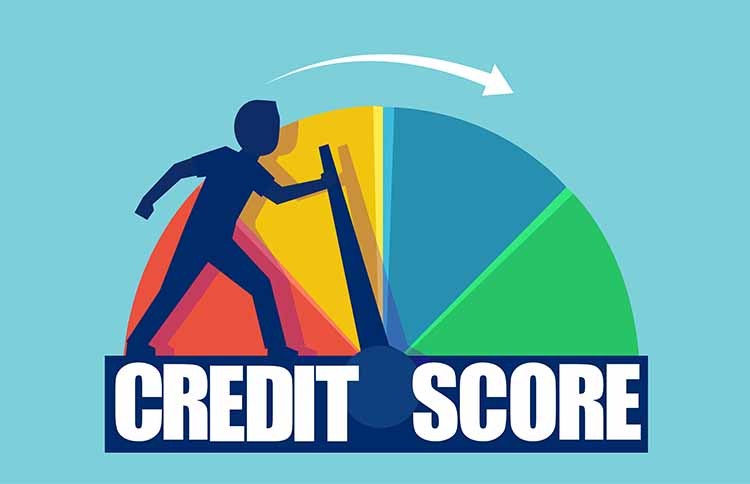
Ways To Turn Your Negative Credit Score Around
A negative credit score can be somewhat difficult to fix, and it can also affect your ability to borrow money from traditional banks.
That’s why poor credit ratings cause more missed opportunities than low incomes do, so now is the perfect time to turn things around.
But how do you get started, what kind of timeframe is needed to change your score, and how can payday loans Utah offers help you avoid falling behind? Here's what you need to know.
What Causes A Negative Credit Score?
A negative credit score can be caused by many different things, including certain behaviors that seem otherwise innocent. For example, your rating can drop by several points just because you applied for a loan through a traditional lender. The creditor places a hard inquiry on your report, which decreases your overall score.
Here are three other reasons your numbers might have dropped:
1. Your Debt-To-Income Ratio Is Off Balance
Did you know that a simple math equation may cause a negative credit score? If your income level doesn't meet and exceed your level of debt, your rating will decrease as a result. The main way to get it back up is to either increase your earnings by taking on a side hustle or limit the amount of money you spend on credit cards and loans.
2. Your Credit History Is Too Short
Creditors like to do business with consumers who have long credit histories. But if your credit history is too short and you start asking for cash from traditional lenders, you could end up seeing a drop in your credit score. That's because most lenders look for at least two years of established history before they'll offer any money to borrowers.
3. You Haven't Paid Your Bills On Time
Neglecting to pay your dues on time can have tremendous consequences on your credit score, even if it's the first time you've paid late or if you were just a day or two late. Delinquent payments can drop your rating by several points in an instant, and they may take months to come off your report once they're there.
NOTE: Good credit behavior is an important factor in preventing these common financial pitfalls.

Facts About Credit Scores And Consumer Behavior
The average consumer in the United States has a credit score of about 710, but most traditional banks require 750 or higher to approve loan applications.
The need for loans may arise from the fact that a majority of American families have less than $3,000 available in their savings account for unexpected expenses and emergencies.
This clearly means that choosing the right approach to your credit makes all the difference. However, smart financial choices require dedication and discipline. So, create a budget that includes all of your income and expenses. Then, find ways to cut back and start funneling that cash into your largest obligations.
How To Turn Your Negative Credit Score Around
Here is how you can turn your negative credit score around. These tips may also help you do that in a shorter time.
- Avoid approaching traditional banks for loans. Each time you do, you get a hard inquiry placed on your credit report whether you get approved or not, which impacts your score.
- Catch up on your monthly bills. These recurring dues will continually report and eventually boost your scores.
- Submit disputes on incorrect information. Some of the facts on your report may be incorrect, and you have a right to do something about it by submitting disputes to correct them.
- Check your credit report often. You get one free look every year according to the law, so take advantage of it to confirm that everything in there is correct.
- Pay off the debts that absorb your income. Taking care of your bigger debts sooner will boost your credit score and free up more money from your income.
How To Prevent A Negative Credit Score From Happening?
Life gets tough sometimes. Maybe you run tight on money, or the day you get your salary doesn’t align with the bills you need to pay, making you only a few days late.
That’s the situation when you may search for payday loans near me, which is of course something to consider. But how can you easily find payday loans without having to spend hours searching?
There are actually two easy steps to get payday loans in Utah:

Step 1 - Provide Your Information To Start Your Process
Utah Title Loans, Inc. uses a streamlined and simple payday loan process that gets you the money you need quickly.
To start, just fill out the short intake form on Utah Title Loans, Inc., and an agent will contact you in a few minutes to give you more information and answer any questions you have. This may be the fastest method to start the process of getting payday loans near me.
Step 2 – Provide The Required Items For Approval
This is what you'll need to get approved for up to $500 today through Utah Title Loans, Inc.:
- Your government-issued photo ID.
- A blank check from an active checking account in your name.
- Your most recent pay stub from work.
Once you arrive at the store with these items, the loan agent will review them to determine whether you qualify and how much you qualify for.
If you do, you can finish the paperwork and keep an eye on your bank account since your loan will hit on the same day (or the next day, depending on bank delays).
The entire process can actually take as little as 30 minutes.
Turn Your Credit Score Around Today
Start working on improving your negative credit score today and don’t let emergencies and sudden expenses take your hard work away.
When you need cash urgently, consider one of the payday loans near me. Utah Title Loans, Inc. has locations all over the state and you can start your process from the comfort of your home using a simple online form.
Note: The content provided in this article is only for informational purposes, and you should contact your financial advisor about your specific financial situation.